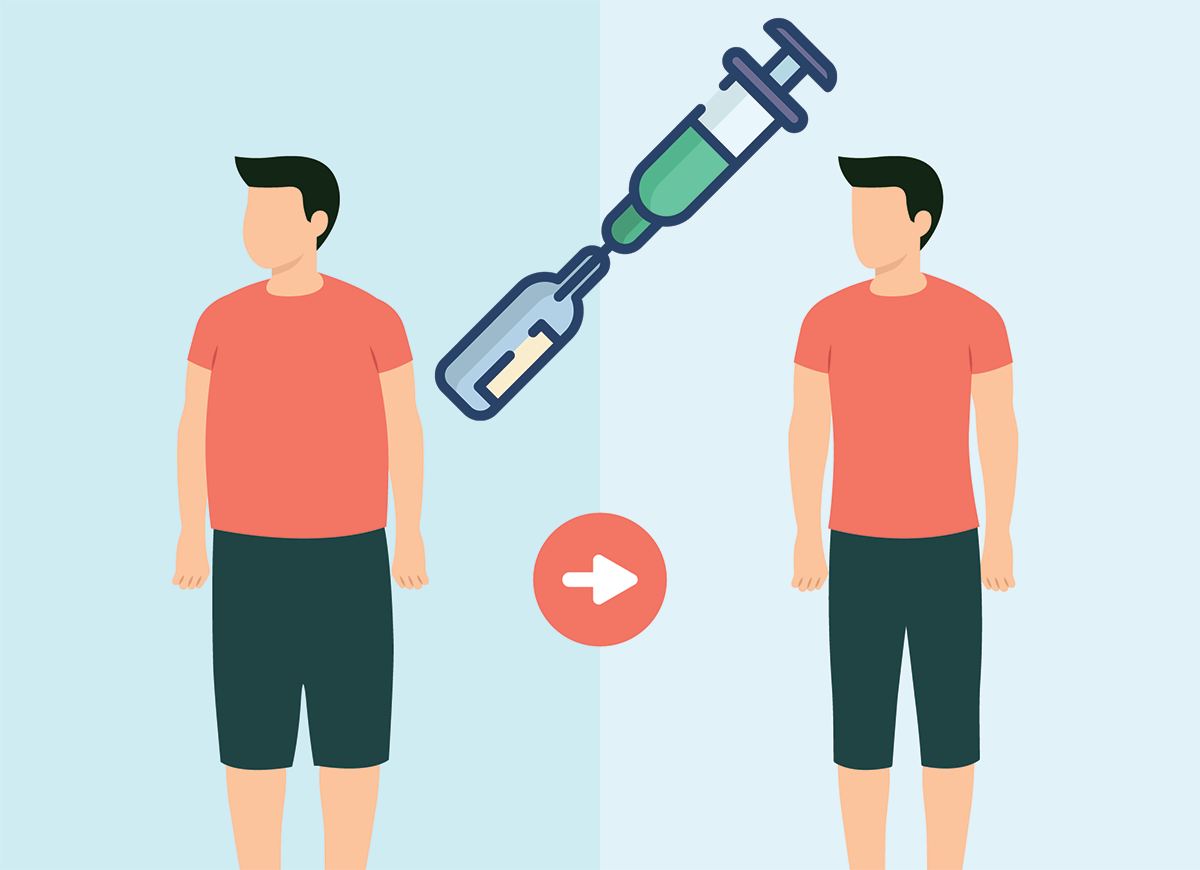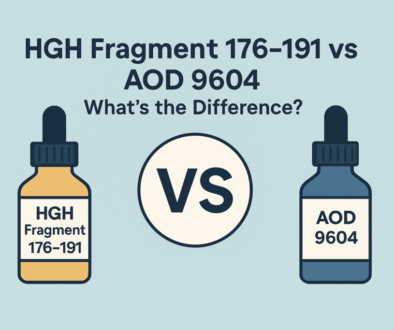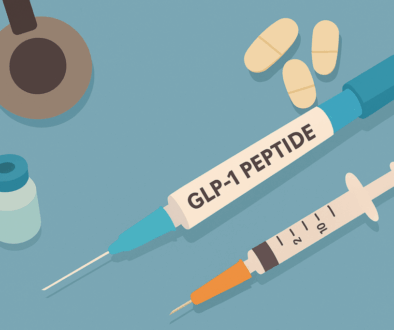Survodutide vs Tirzepatide: Which is Better for Weight Loss?

Weight loss GLP-1 peptides are growing incredibly popular. Tirzepatide (Mounjaro/Zepbound) in particular has become one of the most popular peptides for weight loss, but there are many newer generation peptides coming out as well.
Join Our Newsletter — Get 15% Off
Get the latest offers, peptide research insights, and stock updates.
One such new-generation peptide is survodutide, which works through slightly different mechanisms. Let’s break down what these peptides are and wghat the research says about their effectiveness.
Quick Summary:
- Tirzepatide shows greater weight loss compared to survodutide. It’s also safer, with fewer participants discontinuing due to side effects.
- Tirzepatide targets GIP/GLP-1 receptors, while survodutide works on GLP-1/glucagon receptors. Both have stomach-related side effects like nausea and vomiting, but tirzepatide’s are generally milder.
- Tirzepatide is FDA-approved and widely available, while survodutide is still in clinical trials.
Table Of Contents
What Are These Peptides?
Tirzepatide (Mounjaro/Zepbound)
- Dual GIP/GLP-1 receptor agonist: works by mimicking two natural body hormones that help control blood sugar and appetite
- Aids weight loss by helping you:
- Feel fuller longer
- Process sugar better
- Eat less naturally
Survodutide
- Also works with two natural body signals, but slightly different ones (dual GLP-1/glucagon receptor agonist)
- Aids weight loss by:
- Reducing appetite
- Burning more calories
- Managing blood sugar
How Well Do They Work?
In general, the weight loss results of Tirzepatide appear greater than survodutide. Even when we account for the survodutide studies being shorter in duration, Tirzepatide still appears to produce greater weight loss.
Tirzepatide also appears to be safer, with fewer study participants discontinuing treatment due to side effects.
Tirzepatide
- Tirzepatide has been examined in multiple high-quality clinical studies and is approved for the treatment of obesity.
- A 2022 study of tirzepatide in 2539 people showed 15-20.9% weight loss after 72 weeks, and roughly 14-19% after 48 weeks. It was dosed at 5-15 mg. About 4.3-7.1% discontinued the treatment due to side effects.
Survodutide
- Survodutide is not yet available to the public. It’s currently undergoing phase 3 clinical trials, which have to confirm that it’s safe before it becomes approved for use.
- A 2024 study of 387 people reported an average 6.2-14.9% weight loss with 0.6-4.8 mg doses of survodutide for 46 weeks. About 20-29% of participants discontinued survodutide due to side effects (mostly gastrointestinal).
Side Effects
Tirzepatide
- Most common issues are stomach-related:
- Nausea
- Diarrhea
- Throwing up
- Constipation
- These potential side effects are managed by starting with a low dose and slowly increasing it
Survodutide
- Similar stomach-related side effects
- Researchers are still learning about all possible side effects
- Long-term effects still being studied
- Side effects are managed by starting low and gradually raising the dose

How Are They Taken?
Tirzepatide
- Once-weekly shot under the skin
- Comes in different strengths
- Typically started at a low dose of 2.5 mg and gradually increased up to 10-15 mg
Survodutide
- Also planned as a once-weekly shot
- Doctors are still figuring out the best dosing schedule
Current Availability
Tirzepatide
- Available now with a prescription
- Covered by some insurance plans
- Used for both diabetes (Mounjaro) and weight loss (Zepbound)
Survodutide
- Still in testing phases
- Not yet approved for public use
- May be available in the future if testing shows it’s safe and effective
Bottom Line
Tirzepatide has proven to be highly effective and is available now for those who need it. Survodutide shows promise but needs more research before it becomes available to the public.
Although tirzepatide appears to be more effective overall, everyone responds differently to weight loss peptide therapy. That’s why survodutide might turn out to be a better option in some cases.
We’re eagerly awaiting more clinical data on survodutide so that we can get a better comparison of its weight loss effictiveness and safety vs. tirzepatide and other GLP-1 peptides.
-
- Jastreboff, Ania M., et al. “Tirzepatide once weekly for the treatment of obesity.” New England Journal of Medicine 387.3 (2022): 205-216.
- le Roux, Carel W., et al. “Glucagon and GLP-1 receptor dual agonist survodutide for obesity: a randomised, double-blind, placebo-controlled, dose-finding phase 2 trial.” The Lancet Diabetes & Endocrinology 12.3 (2024): 162-173.



